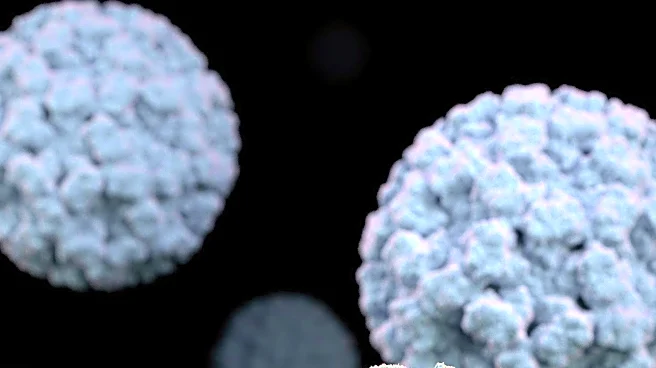What's Happening?
CatalYm has commenced a Phase 2b clinical trial to evaluate the efficacy and safety of its anti-GDF-15 antibody, visugromab, in combination with standard chemoimmunotherapy for patients with newly diagnosed metastatic non-squamous non-small cell lung cancer (NSQ mNSCLC). The trial, named GDFATHER-NSCLC-01, is randomized, blinded, and placebo-controlled, aiming to enroll approximately 107 patients across the US, EU, and Switzerland. Visugromab is designed to neutralize Growth Differentiation Factor-15 (GDF-15), a cytokine that contributes to immune suppression and resistance to anti-PD-(L)-1 therapies. Previous trials have shown promising results, with visugromab enhancing anti-tumor responses and mitigating cancer cachexia.
Why It's Important?
This trial is significant as it addresses the high resistance rates to current immunotherapies in non-squamous NSCLC, a major cause of cancer-related mortality. With low five-year survival rates for this cancer type, innovative treatments like visugromab could improve patient outcomes. The trial's success could lead to a new first-line treatment option, potentially benefiting a large patient population that currently has limited effective therapies. The development of visugromab also highlights the ongoing efforts to overcome immunotherapy resistance, a critical challenge in cancer treatment.
What's Next?
The trial will proceed with an initial non-randomized safety run-in, followed by the randomized phase. Key endpoints include objective response rate, duration of response, and overall survival. Results from this trial could influence future treatment protocols and guide further research into GDF-15 neutralization. CatalYm plans to explore visugromab's potential across various tumor types and conditions, which could expand its application beyond NSCLC.











